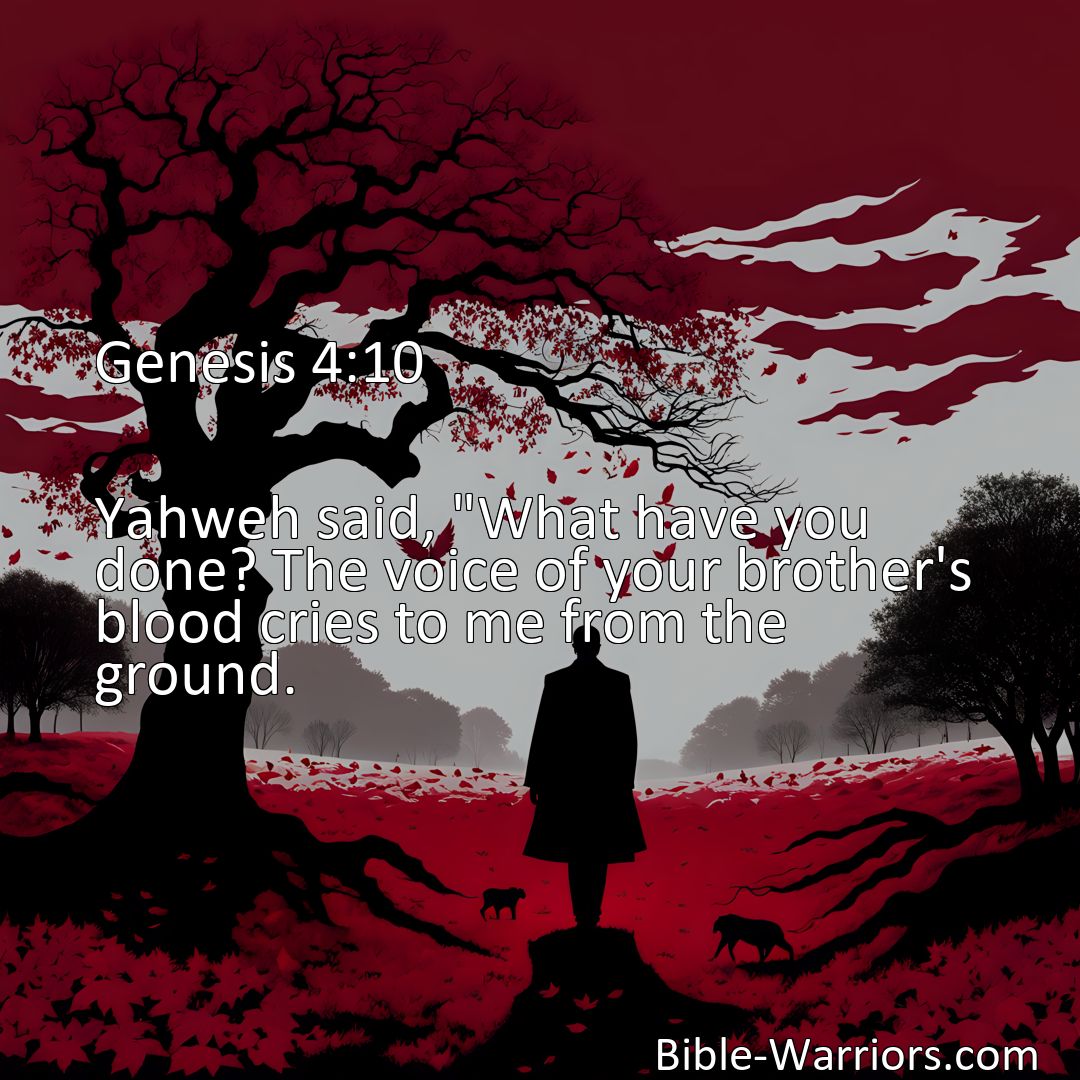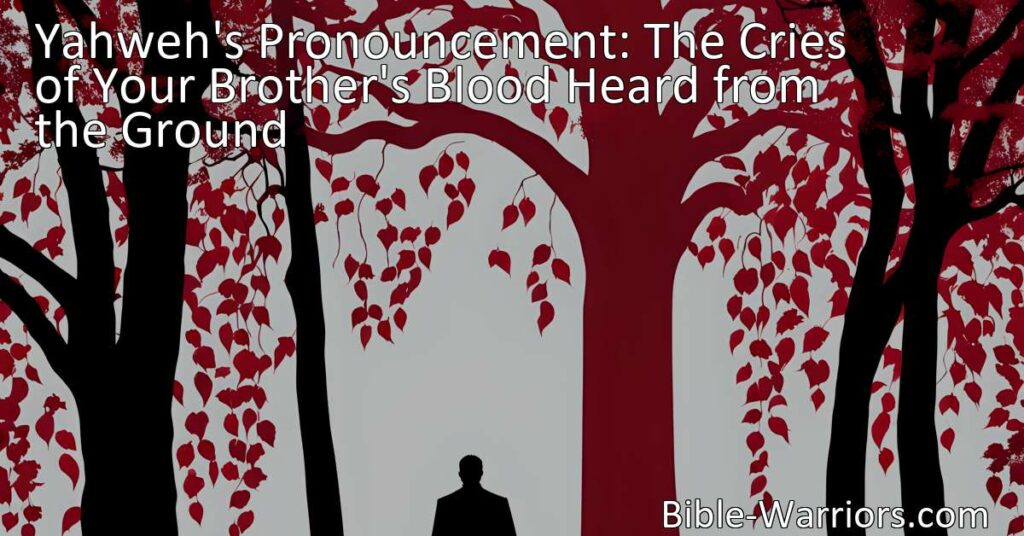Genesis 4:10 – Yahweh said, “What have you done? The voice of your brother’s blood cries to me from the ground.
Yahweh’s Pronouncement: The Cries of Your Brother’s Blood Heard from the Ground reveals the extent of God’s consciousness and divine justice. This biblical verse symbolizes the lasting impact of injustice and serves as a timeless warning against the destructive nature of jealousy. It emphasizes the value of every human life and encourages us to lead a life that respects all human life and upholds justice.
Table of Contents
Yahweh?s pronouncement in Genesis 4:10 is incredibly profound and interesting: ?What have you done? The voice of your brother?s blood cries to me from the ground.” This biblical affirmation is loaded with several symbolic meanings and profound implications for our lives today. It reveals the extent of God?s consciousness and his divine justice. Here, Cain, the firstborn of Adam and Eve, had just killed his brother out of jealousy. God, being omniscient, knew what had happened and confronted Cain about it.
God in this verse is referred to as ‘Yahweh’ – a name that captures His divine authority, power, and relationship with humanity. This name is derived from the Hebrew verb ‘to be’ and can be roughly translated as ?I am who I am? or “the Existence one.” This refers to God’s omnipresent nature, revealing that He is a personal God who sees all, knows all, and hears even the silent cries of spattered blood on the ground.
The ‘voice’ of the brother’s blood in this verse, signifies the unwarranted injustice faced by Abel. His life was cut short due to his brother?s jealousy and rage, his dreams erased with it. The blood seeping into the ground symbolizes the lasting impact and consequence of any injustice. As if the earth itself is soaked with the cries of injustice, constantly reminding Yahweh of the grave wrong done.
God?s consciousness is at the forefront here. His divine consciousness not only registers the actions of every individual, but He also acknowledges and reacts to these events. His consciousness can keenly hear the metaphorical cries of injustice, and He will not allow them to go unheard or unpunished.
The verse strongly illustrates the divine justice of Yahweh. Not only does He know when we are wronged, but He also takes action on behalf of the aggrieved. His justice is absolute and cannot be bribed, manipulated, or outweighed by worldly power or influence. Indicating that despite Cain being the first born ? a position holding significant favor ? God voiced his judgment based solely on righteousness, not by favoritism.
The narrative also sheds light on the deadly effects of jealousy. Cain was envious of Abel because God favored Abel?s offering over his own. Instead of focusing on improving himself or discussing his feelings with Abel or God, Cain allowed anger and envy to consume him, leading to the tragic incident. This incident serves as a timeless warning against the destructive nature of jealousy.
Cain and Abel’s story underscores the profound reality of our actions’ consequences. It reminds us that our actions have repercussions that stretch beyond our comprehension. Therefore, each decision we make and action we take must be weighed carefully.
It?s illuminating to note that even though this event happened at the dawn of human civilization, the message still resonates loudly and clearly today. The voice of unjustly shed blood continues to echo, crying out from the ground, and Yahweh continues to hear it. He is still a God of justice, and He still exists within and around us. So let us listen and learn from Abel’s story ? let us strive to live righteously, with integrity and respect for others.
In closing, Yahweh’s pronouncement: “What have you done? The voice of your brother’s blood cries to me from the ground,” carries a potent message underlining the value of every human life, God’s divine justice, the destructive power of jealousy, the long-reaching consequences of our actions, and the ever-present consciousness of our God. It is a timeless verse that inspires mindfulness in our actions and encourages us to lead a life that is pleasing to Yahweh – one that respects all human life and upholds justice.
Freely Shareable Bible Verse Image Genesis 4:10
I hope this Bible verse image brings you hope and peace. Share it with someone who needs it today!



